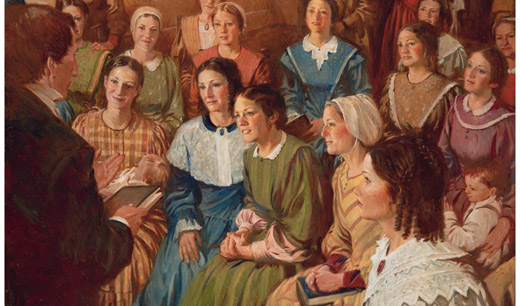
A long time ago, in the December 1924 issue of the Relief Society Magazine, an article was published called, “Joseph Smith’s Views of Women.” Here it is word for word:
Joseph Smith’s Views of Women
It is instructive to remember, on this anniversary of Joseph Smith’s birth, the door his teachings threw open to women in the Church.
The basic idea of these teachings is the doctrine of the eternal comradeship of husband and wife. They are complements of each other, not only here but hereafter. More, a great deal more, than did Paul, the Prophet emphasized the thought that neither is ‘in the Lord’ without the other.
Out of this doctrine grow two other fundamentals. One is that, if they are to be truly companionable, they must both cultivate the mind. Superior and inferior minds cannot very well meet for long. The other thought is, that, if they are to be emotional comrades, they must adhere to the same moral standard in life. If woman has the right to exact the same rigid standard of virtue from man that he has from her, then she becomes dignified in her own sight and in his.
These in turn give rise to lesser ideas. There is the idea that woman has as much right to vote in the state as man, and ‘Mormonism’ was probably the first to grant this right. Then there is the idea that she has the right to vote in the Church. Educationally, ‘Mormonism’ has never discriminated against women. Co-education is, and always has been, the keyword here. While the wife is to ‘obey’ her husband, it is only ‘in righteousness.’ In a word, ‘Mormonism’ recognizes that woman is a personality, and one to be developed along with man.
Such, briefly, are the teachings of the Church respecting woman. But these, directly or indirectly, have their foundation in the teachings of Joseph Smith. And these teachings, too, antedate considerably the more substantial ideas of the modern world concerning woman. Nor have they been fought for by ‘Mormon’ women and won by small concessions at a time. Rather have they been, not always graciously ‘granted’ by the men, but recognized as inherent rights. And that also is something to be proud of.